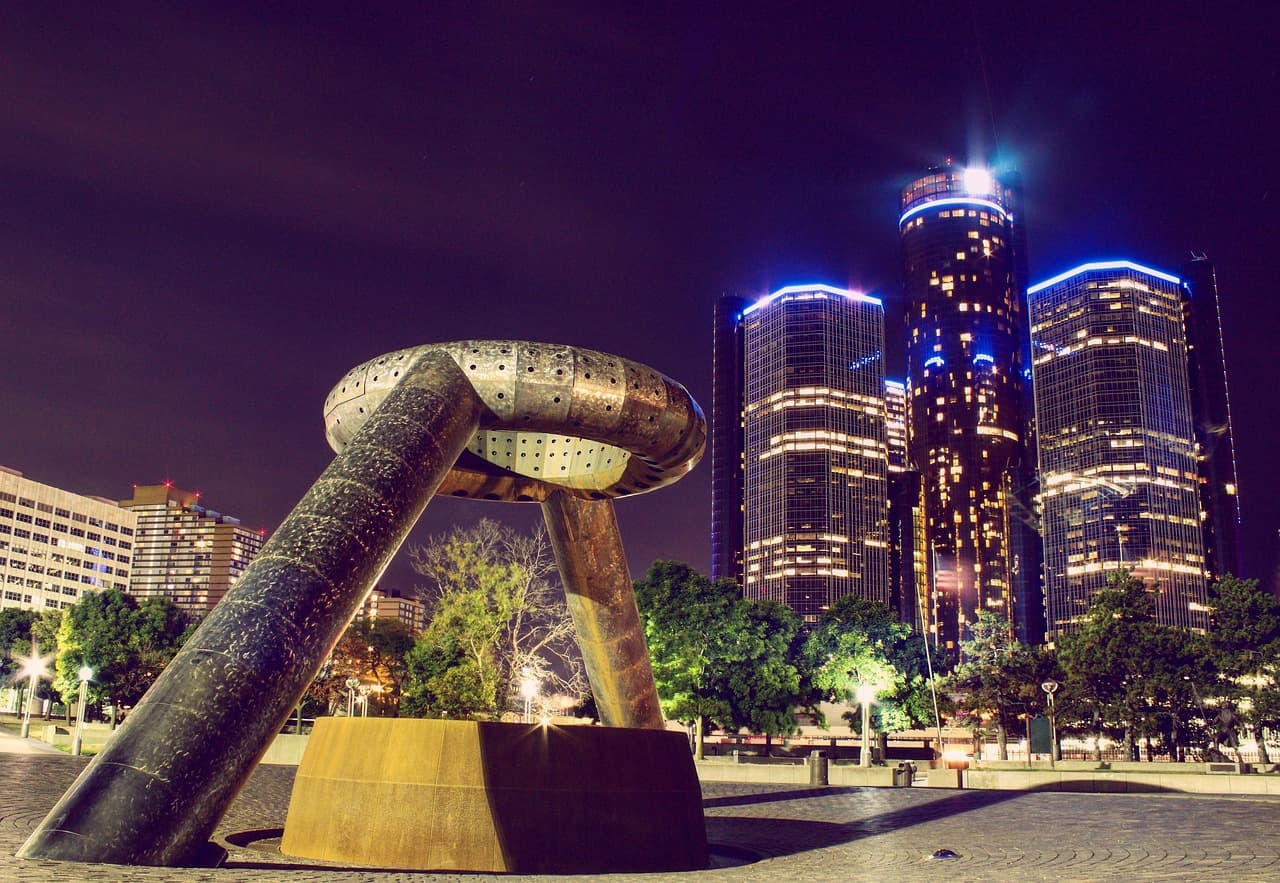The Beginnings: A City’s Secret Underworld
Detroit’s journey into the world of gambling began in the early 20th century, deep in the shadows of the bustling industrial boom. In an era marked by rapid urbanization, the city witnessed the emergence of a clandestine gambling culture, thriving in speakeasies and hidden dens. These underground establishments, operating on the fringes of legality, laid the groundwork for a gambling legacy that would deeply influence Detroit’s future.
Prohibition and the Roaring Twenties
The Prohibition era (1920-1933) catalyzed a surge in illicit activities, with Detroit becoming a nexus for illegal booze and gambling. Speakeasies doubled as gambling houses, offering refuge for those seeking the thrill of the forbidden. This period, notorious for its lawlessness, inadvertently nurtured a gambling scene that would later seek legitimacy.
Post-Prohibition and Organized Crime
Post-Prohibition Detroit saw the rise of organized crime, which kept illegal gambling alive. The city’s gambling dens, often under mob control, became fixtures in certain neighborhoods. This era cemented gambling’s presence in Detroit, albeit still within the shadows of illegality.
The Turning Point: Legalization and Regulation
A paradigm shift occurred in the mid-1990s with the Michigan Gaming Control & Revenue Act. In 1996, this legislation heralded a new era for Detroit’s gambling scene, transitioning it from an underground enterprise to a government-regulated industry. This momentous shift paved the way for the city’s first legal casinos, signaling a new dawn for gambling in Detroit.
The Big Three: Changing Detroit’s Skyline
The establishment of MGM Grand Detroit, MotorCity Casino, and Greektown Casino in the late 1990s transformed Detroit’s cityscape. These casinos, beyond their gaming floors, offered luxurious hotels, fine dining, and entertainment venues, positioning Detroit as a major player in the national gambling scene.
To experience the excitement of slot games akin to those found in these casinos, websites like SlotFortuneOX.com offer a wide array of online slot options.
Economic Revival and Urban Transformation
The introduction of these casinos had a significant impact on Detroit’s economy. They became major employers, tourism drivers, and revenue generators, contributing to the city’s post-industrial economic revival. Furthermore, their presence spurred urban redevelopment, revitalizing parts of the city that had been in decline.
The Digital Era: Online Gambling’s Rise
The 21st century ushered in the digital revolution, reshaping many industries, including gambling. Michigan’s legalization of online gambling expanded Detroit’s gambling landscape, allowing residents and visitors to enjoy casino games from the comfort of their homes. Platforms like Gates Of Olympus exemplify the modern era of gambling, providing immersive online experiences that mirror the thrill of land-based casinos.
The Cultural Impact: More Than Just Casinos
Detroit’s gambling scene has become a part of its cultural fabric. The casinos have grown to be more than gambling hubs; they are centers of entertainment, hosting concerts, shows, and events that attract people from all walks of life. This blend of gaming and entertainment has helped reshape Detroit’s image, from a city in decline to one of resurgence and vitality.

Legal Landscape Today: A Model of Regulation
Today, Detroit’s gambling industry is one of the most well-regulated in the United States. The legal framework ensures fair play, promotes responsible gambling, and provides significant tax revenues to the state and city. This regulatory environment has been crucial in maintaining the integrity of the industry and safeguarding against potential social harms.
The Future: Innovation and Expansion
Looking ahead, the future of gambling in Detroit is bright. With the potential for new casino developments, the continuous evolution of online gambling platforms, and advancements in gaming technology, Detroit is poised for further growth in this sector. The city is expected to remain at the forefront of the gambling industry, both in traditional and digital formats.
The Role of Community and Responsible Gambling
As the gambling industry grows, so does its role in the community. Detroit’s casinos have become active in local social initiatives, contributing to various community projects. Additionally, the promotion of responsible gambling practices is integral to the sustainable growth of the industry, ensuring that the gambling scene in Detroit remains a positive force in the city.
Conclusion
The history of gambling in Detroit is a remarkable tale of transformation, resilience, and innovation. From its clandestine beginnings to its current status as a major gambling destination, Detroit’s journey mirrors the broader narrative of the city itself. Whether on the vibrant casino floors or through the virtual realms of online slots, Detroit continues to redefine the gambling experience, contributing significantly to the city’s economy and cultural landscape.

